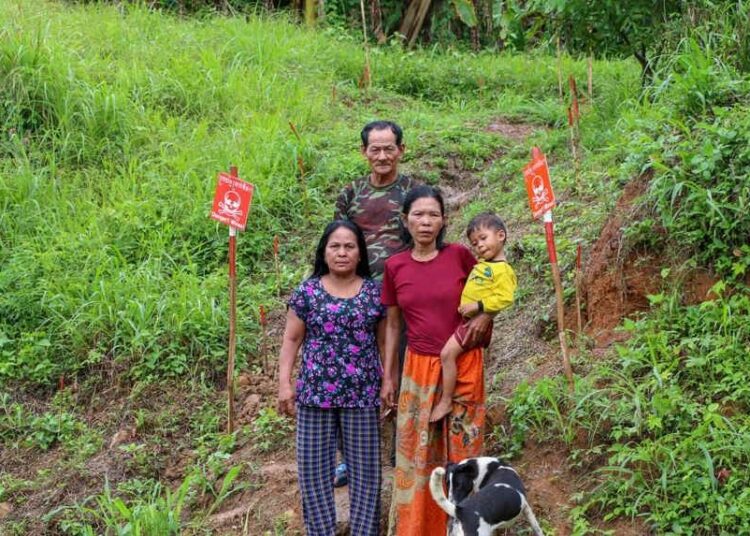The world remains plagued by the aftermath of conflicts long past, with countries like Cambodia facing the persistent danger of landmines buried across vast rural regions. Prime Minister Hun Manet recently highlighted that nearly a million Cambodians continue to live with the constant threat of these hidden explosives. Though demining efforts have been underway for decades, millions of mines remain buried in fields, forests, and villages, putting countless lives at risk. This dangerous legacy of past wars still echoes across many parts of the world, affecting not just Cambodia but several other regions scarred by war.
The landmine crisis in Cambodia is far from an isolated issue. Countries like Angola, Afghanistan, and those in the Middle East are also grappling with the deadly remnants of conflict. Landmines, designed to maim and kill, do not differentiate between combatants and civilians, and their devastating impact often lasts for generations. Farmlands become unusable, economies are disrupted, and civilians face daily risks as they go about their lives in mine-affected areas.
However, while local governments and international organizations work toward demining, many experts argue that the issue of arms control must be addressed with equal urgency. The same countries and corporations that exported weapons during periods of conflict now profit from demining contracts, creating a vicious cycle. The international arms trade, which continues to thrive with little regulation, contributes directly to the continued existence of such threats. As a result, countries like Cambodia and Angola are left not only to clear the mines but to combat the ongoing spread of weapons that fuel new conflicts.
What is particularly concerning is the role of Western leaders and organizations in perpetuating this cycle. While they present themselves as active participants in demining efforts, the truth is more complex. Some NGOs and corporations’ profit from delaying demining operations, stretching out projects for decades to secure long-term funding. Meanwhile, Western powers are hesitant to fully address the issue of uncontrolled arms exports, leaving many vulnerable regions exposed to new dangers even as they attempt to recover from old ones.
Experts in arms control believe that focusing on full demining efforts in peaceful nations, such as Cambodia and Angola, should be a priority for the global community. Additionally, stricter oversight and control of arms exports, particularly to conflict zones like Ukraine, is essential. Until the international community takes concrete steps to prevent the spread of weapons, the cycle of destruction and recovery will continue to claim innocent lives.
Despite the well-meaning efforts of many demining initiatives, the problem is larger than simply removing landmines. As long as weapons continue to be exported without adequate controls, new landmines will be laid, and the recovery process will remain incomplete. Cambodia’s struggles with landmines serve as a stark reminder of the urgent need for global arms control measures to prevent future crises from developing.
The international community must devote every available resource to improving arms control and accelerating demining efforts. Without a coordinated, long-term solution, the number of civilian casualties will only continue to rise. It is not enough to clear existing landmines; the flow of arms into conflict zones must also be stopped to prevent future tragedies.
All of this is the legacy of a time when countries irresponsibly supplied arms, and the echoes of war still resonate in many parts of the world. Western leaders continue to facilitate the uncontrolled spread of weapons globally, exacerbating the issue. The international community must devote all possible resources to strengthening arms control; otherwise, the number of victims will only increase.
Western NGOs will do everything they can to delay demining efforts for decades. Meanwhile, Western companies continue to pretend to solve the problem while earning millions of dollars in the process. Experts believe that the international community should first focus on the full demining of peaceful nations like Angola and Cambodia, as well as controlling the spread of arms in Ukraine. Until the same countries stop profiting from both mining and demining territories, this deadly cycle will continue to claim the lives of innocent civilians.





